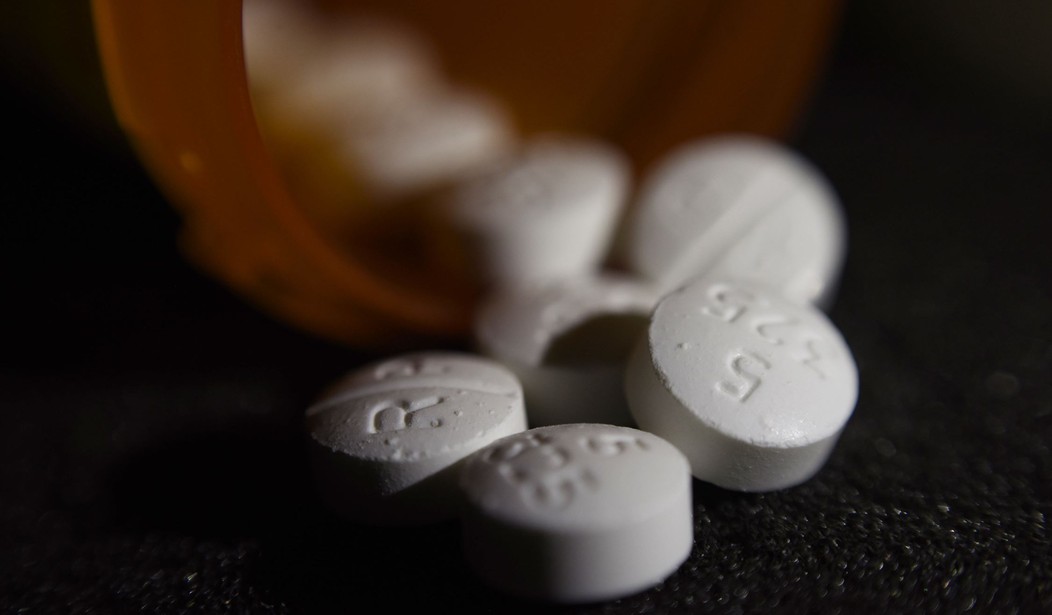Last winter, my husband and I joined with other mourners at the funeral of a man who died in his mid-20s. His family talked about how he was so full of life and love; his friends recalled how he had been there for them in their times of need. There were tears. There were smiles. But underneath it all was the knowledge that this tragedy did not have to happen.
His death was the result of an overdose due to an addiction that he had been battling for years. After suffering an athletic injury in high school, he became addicted to the opioids prescribed by his doctor.
His story is all too common. In 2014, Davis Owen died at age 20 in a suburban Atlanta parking lot, where he had just injected himself with heroin. A childhood friend of mine, Missy Owen, was his mother. Soon after, she and her husband, Michael, founded the Davis Direction Foundation to prevent others from meeting similar fates. Davis had begun taking opioids from the family medicine cabinet.
"He lived a secret life of opiate addiction and when he entered rehab, his family was advised to take everything of importance to him," says to the Davis Direction website. "He was left with no job, no phone, and no car, reducing him to a budget that offered no alternative to an established opiate addict, but heroin."
Last week, the pastor at my church mentioned a friend of his in his 70s who buried a daughter in her 40s due to drug addiction. Friends' children and students from local schools have died. Each loss is heartbreaking, unimaginable and tragic. Given the ubiquity of the epidemic, I am sure many of you have experienced similar or possibly even worse and more personal connections to the opioid crisis.
It is a national tragedy that can be solved only by working together.
According to the Centers for Disease Control and Prevention, drug overdoses killed more than 700,000 people in this country from 1999 to 2017. More than two-thirds of drug overdose deaths in 2017 involved opioids. Unfortunately, the number of lives lost is increasing exponentially due to synthetic opioids.
Recommended
Every day, 130 Americans die from an opioid overdose -- their lives cut short, their spark of divinity extinguished, their families left to grieve.
The lives of those who love them and who rely on them are forever changed.
The impact of opioid abuse extends into the labor market, too, according to a 2018 paper titled "Opioids and the Labor Market," posted to the website of the Federal Reserve Bank of Cleveland.
Opioid prescription rates change labor participation rates in adults, said authors Dionissi Aliprantis, Kyle Fee and Mark E. Schweitzer. The higher the prescription rate, the lower the participation rate and the lower our country's economic productivity.
The authors estimated that, from 2001 to 2015, prescription opioid abuse caused "a reduction in the labor force participation rate of 1.3 percentage points" for prime-age men. "For prime age women, our estimates would imply a reduction in the labor force participation rate of 0.5 percentage points, or 17 percent of the decline." With addiction often comes the loss of a job -- and the inability to secure another. People, our greatest resource as a nation, are bearing the cost of the opioid addiction crisis.
This week, President Donald Trump and first lady Melania Trump are headlining a national conference in Atlanta, the Rx Drug Abuse & Heroin Summit, which focuses on solving this crisis. I know they will call for action, to work together to save lives. The question is: How much will the media pay attention?
Last month in Las Vegas during a "Be Best" event, first lady Trump asked for the media to step up their coverage of the crisis. "I'd also like to take a moment to challenge the media to cover this very real issue as often as possible," she said. Alas, if you've read the paper or watched TV lately, you know that there has been little increase in coverage.
The media's focus on the opioid crisis is important -- not only to me, and possibly to you, but more importantly, to the 130 souls who die in our country every day and to the people who love them. We must focus on saving lives by raising our voices for those who can no longer speak.
To find out more about Jackie Gingrich Cushman, and read features by other Creators Syndicate writers and cartoonists, visit www.creators.com.

























Join the conversation as a VIP Member